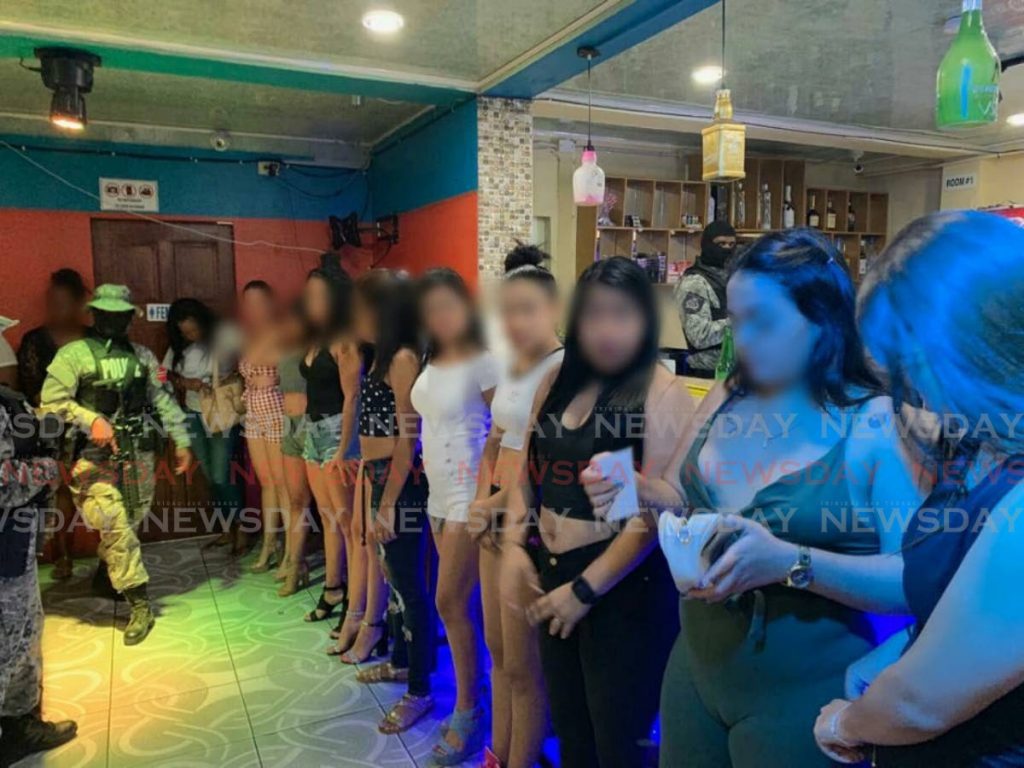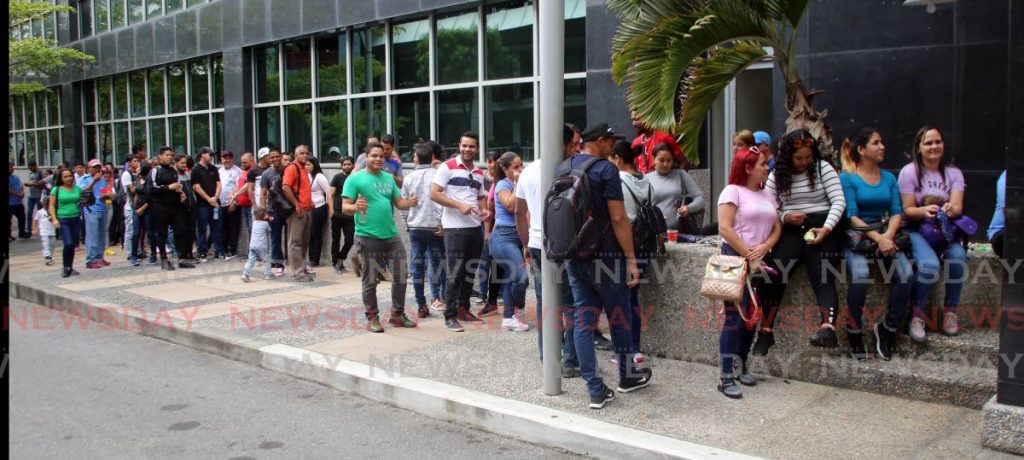Venezuelans face eviction as bars, clubs remain closed

Hundreds of Venezuelans who work at bars, restaurants and hotels face the risk of being evicted from their apartments after being out of work since last month.
Government’s announcement of restrictions on the operations of those businesses, which continues April 30, has left them desperate as they are unable to work, buy sufficient food and send help for relatives back home.
None of them are entitled to the State’s salary relief grant which is expected to roll out later this month by providing up to $1,500 for a certain category of workers temporarily laid off in the face of the covid19 pandemic or other grants.
A total of 16,523 Venezuelans who were registered to work and live in this country during a two-week process last June. However, there are a considerable number of them working illegally across many sectors including construction and agriculture and brothels.
Most Venezuelan refugees agree with the government measures to prevent the spread of covid19, but many evaluated the economic part that for them can go from complicated to critical.
“The vast majority of Venezuelans who are in TT depend on daily life and many of us work in bars and restaurants. A month without work is a severe blow to our economy and the expenses we have on a monthly basis,” Angelo Maita told Sunday Newsday.
Although she recognises that health and life come first, Maita expressed her concern that without the money from her employer she and many like her are on a very thin line to cover their needs.

“We must stock up and we cannot do it thinking that we must pay the rent of the apartment or the owners will take us to the street if we don’t pay,” he said.
“My two sisters and I work in a bar in Chaguanas cleaning and serving customers, the three of us live together in a room for which we pay $ 2,000 a month, now we will not work indefinitely, this is difficult for us and our families. They hope in Venezuela that we can help them,” added María Luces. The 25-year-old woman said they received threats from the apartment owners.
“We live nine people in three rooms and we have all been at home the last two weeks. The owner of the apartment has already warned us that we must pay the rent in full before May 1 or he will take us to the street,” said Luces.
“We all spoke to the landlord to cover part of the rent money with jobs within his properties such as cleaning and remodelling, but he said that he wants the money, without thinking that it is a global crisis and that we are all human beings,” added Carlos Mata, who lives in Chaguanas with his two brothers.
Despite the fact that the world economy is being affected by covid19, many people have decided to help others, including several homeowners.
“In our building we have 12 Venezuelans, I spoke to them and told them that they are going to wait quietly, several of them have paid part of the rent and that helps us at least to cover the payment of services,” the owner of several apartments in Arima told Sunday Newsday.
“We know that many Venezuelans have not been able to save money because of their commitments to families in Venezuela, in addition to the expenses they have to live here and that is why we try to be flexible,” said the landlord.
He highlighted that he has reached agreements with the tenants on the payment of outstanding sums.
“The idea is to help them, but that they fulfil their commitments, after the confinement is over and everything returns to normal, they must pay the accumulated amount in parts, together with the time it runs,” he said.
Another landlord, who also spoke on the condition of anonymity, was a little tougher.
He said he must pay for services and that he cannot have people living free on his property.
“Many Venezuelans have been here for more than a year, I do not understand how they have not been able to save a little money for emergencies and this is an emergency,” he said.
For three weeks now, the UN High Commission for Refugees (UNHCR) and Living Water Community have kept their offices in Port of Spain closed, but have emergency phone numbers for the migrants. UNHCR’s contacts are 296-3881, 280-3529, 309-7394 and the e-mail ttopo@unhcr.org.
Several Venezuelans reported that until last week they were to receive financial aid.
One NGO, Soroptomist International, of San Fernando, with the assistance of the business sector, and the La Romaine Migrant Support Group, recently helped donate basic food hampers to migrants in need as many of them were now out of work and had no other avenue to access money for food and other critical supplies.

Comments
"Venezuelans face eviction as bars, clubs remain closed"